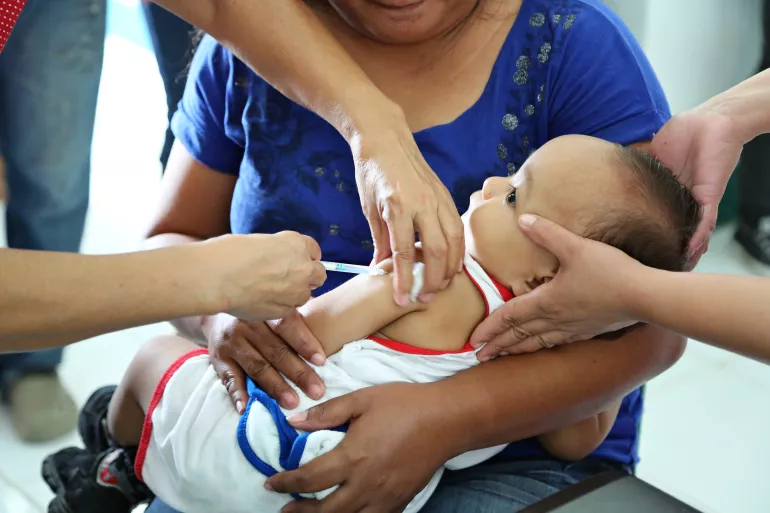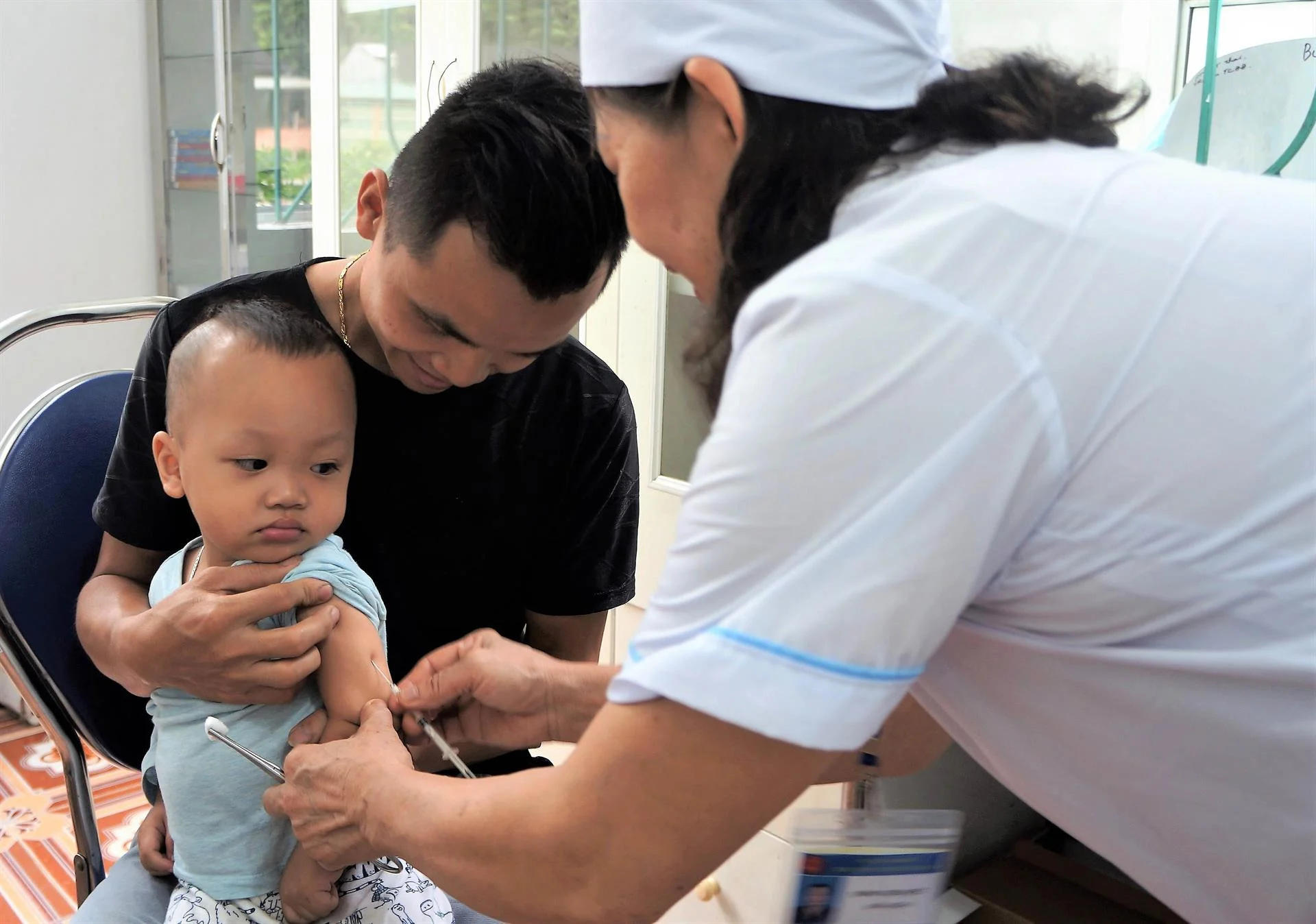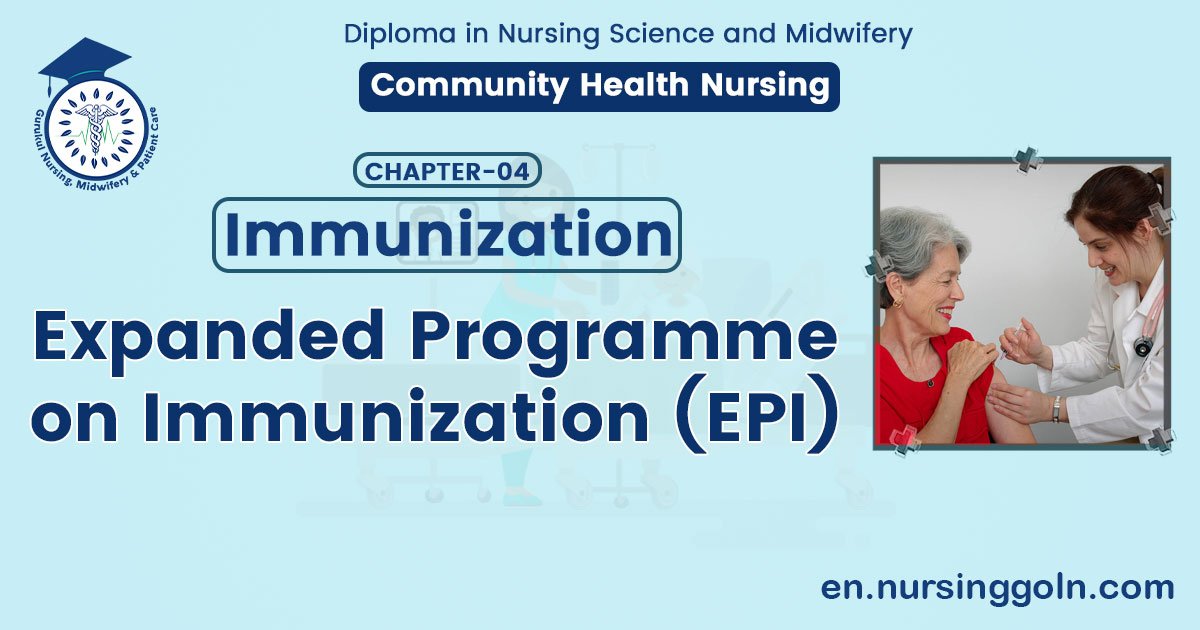Expanded Programme on Immunization – This book covers the entire syllabus of “Community Health Nursing” prescribed by the Universities of Bangladesh- for Basic and diploma nursing students. We tried to accommodate latest information and topics.
This book is examination friendly setup according to the teachers’ lectures and examination’s questions. At the end of the book previous university questions are given. We hope in touch with the book students’ knowledge will be upgraded and flourished. The unique way of presentation may make your reading of the book a pleasurable experience.
Expanded Programme on Immunization
Immunization:
It is defined as a technique by which immunizing agents are introduced into the body for the production of antibodies to prevent disease.
Or
Immunization is the process whereby a person is made immune or resistant to an infectious disease, typically by the administration of a vaccine.

Classification of vaccine used in EPI:
1. Live attenuated vaccine
- a) Bacterial BCG
- b) Viral Oral polio &Measles.
2. Toxoids – TT.
3. Combined- DPT (Diphtheria pertusis-tetanus)
Vaccine used in EPI:
- BCG Vaccine
- DPT Vaccine
- Oral Polio Vaccine
- Measles Vaccine
- TT Vaccine
- Hepatitis B Vaccine
- Haemophilus influenza -B
Expanded programme on immunization:
In May, 1974, the world health organization officially launched a global immunization programme, known as expanded programme on immunization to protect all children of the world against six vaccine preventable disease by 2000 AD.
Target diseases
- TB
- Diphtheria
- Pertussis
- Tetanus
- Poliomyelitis
- Measles.
- Hepatitis B
In Bangladesh Start; 7th April 1979
The main objective of EPI is reduce infant mortality rate.
The EPI programme is now called Universal child immunization)
Objectives of ΕΡΙ
➤Decreased mortality & morbidity of infant or a child from six above mentioned disease
➤ Decreased disability from poliomyelitis
➤Decreased maternal mortality
➤To prevent all the children from six mentioned disease.
Present Goals / Achievements of EPI in BD
➤ Eradication of poliomyelitis
➤ Elimination of neonatal tetanus by 2005
➤To reduce measles incidence up to 90% & mortality rate due to measles upto 95% from previous, disease.
➤ Prevention of TB. Diphtheria, pertussis by 2005AD.
Additional activities:
If there is chance of outbreak
➤ To reduce measles – 200 babies are given measles vaccine.
➤To reduce tetanus – 20 mothers are given TT.
➤ To reduce polio
- National immunization day (NID)
- EPI coverage-75%

National EPI polices in BD
➤ Immunize all children under one year of age throughout the country.
➤ Immunize all women of child bearing age including pregnant women throughout the country.
➤ Extend service delivery point up to the country to cover all target.
➤Involve community level health family planning workers as vaccinators.
EPI service delivery in Bangladesh
Two type’s service center
A) Fixed center
✔ Government health institution.
✔ Municipal & city corporation health facility
✔Health facility running NGOs.
B) Outreach center (ORC)
✔ Established at village level
✔ Under combined service delivery package.
Importance of EPI:
✔ It plays a vital role to prevent 6 preventable disease by immunization.
✔It down the IMR
✔It down the disability from poliomyelitis.
EPI Plus
Means immunization of the infant against 6 communicable diseases under EPI along with supply of
- Vitamin A capsule
- folic acid
- Iron
- Iodine &
- Health education
